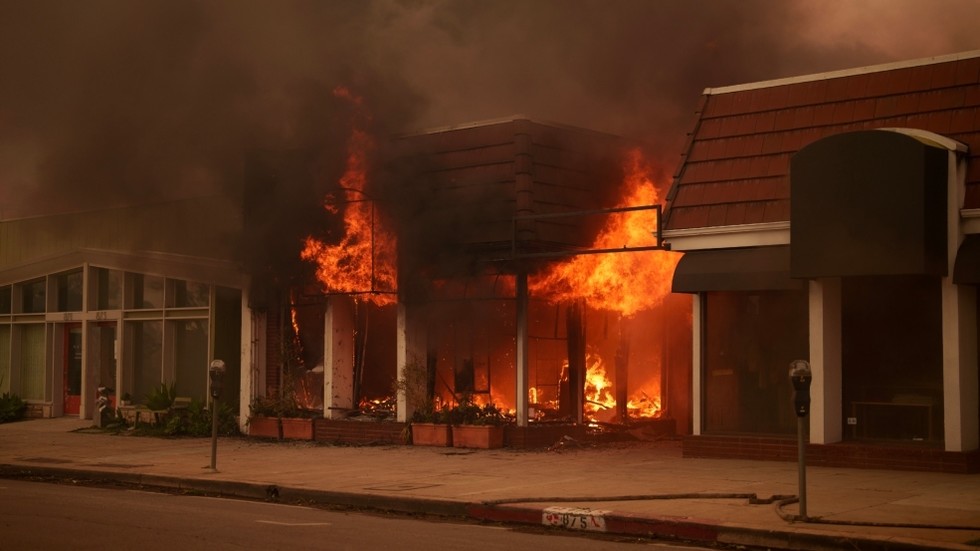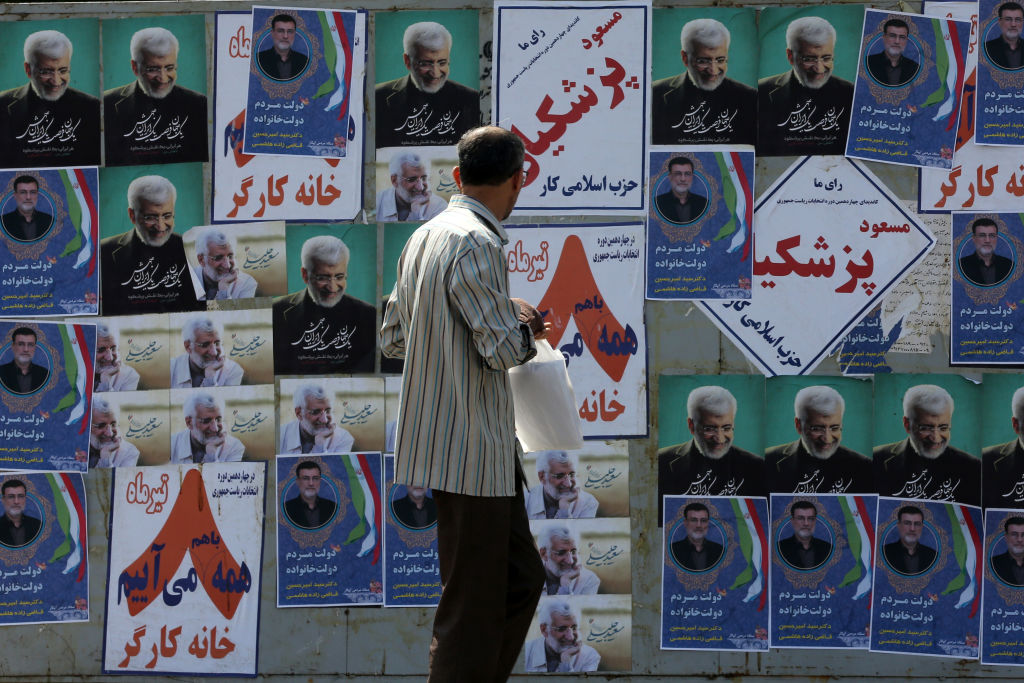Most Austrians would probably agree that Herbert Kickl is polarizing.
His political opponents consider the 56-year-old a "security risk," a designation Chancellor Karl Nehammer of the conservative Austrian People's Party (ÖVP) has given him.
The more than 1.4 million voters who helped Kickl and his far-right Freedom Party (FPÖ) to a stunning election victory in September 2024 see him differently. In winning 28.8% of the vote, the FPÖ, founded in 1956 by former Nazis, became the strongest party in Austria's parliament for the first time.
The FPÖ is currently polling at around 35%, and after coalition talks from the country's centrist government fell apart, Austrian President Alexander Van der Bellen has now officially tasked the far-right party to form a government.
 Austria's President Alexander van der Bellen has tasked the controversial right-wing leader Herbert Kickl with forming a government.Image: photonews.at/Imago
Austria's President Alexander van der Bellen has tasked the controversial right-wing leader Herbert Kickl with forming a government.Image: photonews.at/ImagoHow Herbert Kickl became the 'People's Chancellor'
After September's election, surveys from ORF, Austria's public broadcaster, showed that FPÖ voters based their election choice primarily on the party's content. Only 2% said Kickl, the party's top candidate, was the primary reason for their vote.
Kickl has been described as less charismatic than previous FPÖ leaders, a lone wolf who has long operated in the background. Born in 1968 in Villach, a city in southern Austria, he has only given a few interviews to hand-picked media outlets.
Only basic information is known about his personal life. He is married with a son and does triathlons and mountain sports. After completing his military service as a mountain trooper, he studied humanities in Vienna but didn't finish his degree.
Now, Kickl is set to become the next chancellor of Austria. The FPÖ has coined him the "People's Chancellor" without any reservations about its Nazi past. Before he was given the "Führer" moniker, Adolf Hitler, who was born in Austria and temporarily annexed the country to the German Reich, was known as the "People's Chancellor."
The FPÖ has distanced itself from Nazism and, in August, sued an association that published a video comparing Kickl to Hitler.
 Then-vice chancellor Heinz-Christian Strache had to step down after the Ibiza affair. Image: picture-alliance/dpa/Spiegel/Süddeutsche Zeitung
Then-vice chancellor Heinz-Christian Strache had to step down after the Ibiza affair. Image: picture-alliance/dpa/Spiegel/Süddeutsche ZeitungPhoenix from the ashes of the Ibiza affair
Kickl has gradually risen in the Freedom Party ranks. He started as a speechwriter and advisor to its former leader, Jörg Haider. He later served as secretary general under Haider's successor, Heinz-Christian Strache.
Strache resigned as vice chancellor in 2019 over the so-called Ibiza affair, which involved a video secretly recorded in Ibiza documenting how Strache and other politicians were open to corruption. Kickl, then Austria's interior minister, refused to resign with Strache and was the first minister in modern Austria to be dismissed.
However, in June 2021, he became head of the party and managed to draw a line under the Ibiza affair despite being accused of involvement by then-Chancellor Sebastian Kurz.
Migration hardliner, EU sceptic, Putin supporter
During his 17 months as Austria's interior minister, Kickl repeatedly came across as a hardliner, particularly regarding migrants. At one point, he planned a curfew in initial reception centers and euphemistically described this step as a "voluntary night's rest."
On another occasion, he considered deporting foreign criminals convicted at the first instance before a possible appeal.
During the 2019 European election campaign, Kickl even hinted at wanting to circumvent the European Convention on Human Rights "because I still believe that the principle applies that the law must follow politics and not politics follow the law," Kickl said verbatim on the Austrian public broadcaster ORF at the time.
Prioritizing Austria
Herbert Kickl also shares his party's EU-sceptical stance. In the past, he has described EU policy as "snooty and complacent." At the same time, the FPÖ's election manifesto envisages restricting the powers of EU institutions and calls for a "Fortress Austria" within the Schengen area.
As such, the FPÖ is somewhat more moderate than the German right-wing party Alternative for Germany (AfD), which is campaigning ahead of Germany's snap election on February 23 on a platform to leave the EU.
In many other areas, however, the FPÖ and AfD have similar positions. Both use the buzzword "remigration" to promote mass deportations. Kickl also reinforced his party's Islamophobic slogans and gave a speech at a far-right networking meeting in 2016. He is credited with the election campaign slogan "Daham instead of Islam" ("Daham" means "at home").
Just like AfD representatives, Kickl also sought proximity to anti-vaccinationists and conspiracy theorists during the coronavirus pandemic.
 Germany's AFD-politician Alice Weidel and Austria's FPÖ-politician Herbert Kickl share many political views.Image: Carsten Koall/dpa/picture alliance
Germany's AFD-politician Alice Weidel and Austria's FPÖ-politician Herbert Kickl share many political views.Image: Carsten Koall/dpa/picture allianceRussian gas and blame on the West
Furthermore, the FPÖ and AfD reject arms deliveries to Ukraine.
On the first anniversary of Russia's full-scale invasion in February 2023, Kickl spoke in parliament in Vienna of a "long history of provocations, including by the US and NATO." In his view, both sides were to blame.
Kickl also opposes European sanctions against Russia. Instead, the FPÖ claims that Russian gas "continues to make an important contribution" to energy security. In 2016, the FPÖ signed a treaty of friendship with Vladimir Putin's United Russia party but has since played down the relationship.
Is Kickl steering Austria towards Orban?
Critics fear that Kickl, as chancellor, could adopt the style of the Russia-friendly Hungarian Prime Minister Viktor Orban.
Both are on good terms. Last summer in Vienna they sealed the founding of the right-wing group "Patriots for Europe" in the EU Parliament with former Czech Prime Minister Andrej Babis.
Following their election victory in September, a bulwark was initially formed in Austria against Kickl's FPÖ.
"Nobody wants you!" Christian Stocker, secretary general of the Austrian People's Party (ÖVP) shouted in parliament at the time.
However, last weekend, Stocker was nominated to replace previous party leader Karl Nehammer as interim party head and now wants to negotiate an FPÖ/ÖVP government under Herbert Kickl.
Austrian president taps far-right leader to form government
This article was originally published in German.

 By Deutsche Welle (World News) | Created at 2025-01-08 08:54:35 | Updated at 2025-01-09 03:08:07
18 hours ago
By Deutsche Welle (World News) | Created at 2025-01-08 08:54:35 | Updated at 2025-01-09 03:08:07
18 hours ago








